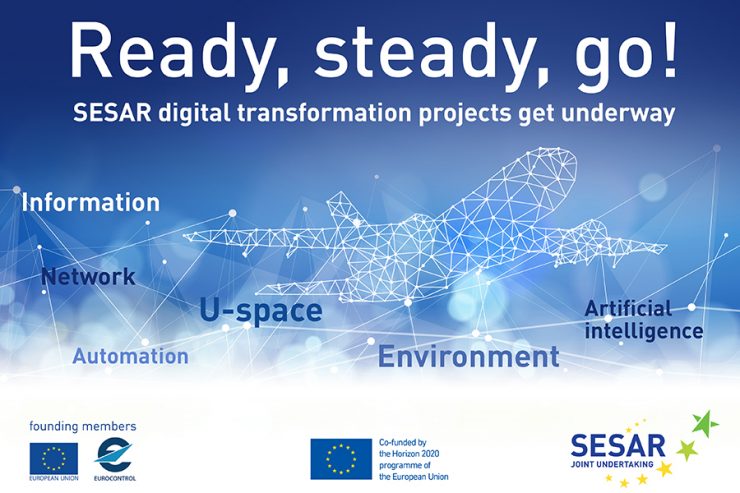Exploratory drone research projects have secured almost EUR1.4 million EU funding among a portfolio of 29 new exploratory projects, recently launched by the SESAR Joint Undertaking within the framework of the SESAR 2020 research and innovation programme and backed by EUR 38.5 million funding from the EU’s Horizon 2020 budget.
Three projects specifically address U-space operations and contribute to continued development of standards and procedures to support integration of unmanned aircraft systems with manned aviation.
BUBBLES
Defining the BUilding Basic BLocks for a U-Space SEparation Management Service (BUBBLES) project aims to to formulate and validate the concept of a U-space advanced (U3) ‘separation management service’. It will develop algorithms to compute the collision risk of UAS, allowing to define separation minima and methods, so that a safety level stated in terms of overall probability of collision can be defined and maintained. Participants include: Universitat Politècnica de València; Universidade de Coimbra; Università degli Studi di Roma “La Sapienza”; Eurocontrol; and Indra Sistemas. The project is due completion in October 2022.
DACUS
Demand and Capacity Optimisation in U-space (DACUS) aims to develop a service-oriented demand and capacity balancing (DCB) process for drone traffic management. This overall objective responds to an operational and technical need in European drone operations for a tangible solution integrating the functionalities of the SESAR U-space services for traffic management to produce timely, efficient and safe decisions. Participants include: Centro de Referencia de Investigación, Desarrollo e Innovación ATM; Enaire; Eurocontrol; Ingenieria y Economia del Transporte; Technische Universität Darmstadt; ISA Software Limited; Sopra Steria; Toulouse Métropole; Boeing Research & Technology Europe; Jeppesen GmbH; and Netgengid ehf. Research activity continues until December 2022.
ICARUS
Integrated Common Altitude Reference systems for U-Space (ICARUS) aims to propose an innovative solution to the challenge of the common altitude reference inside very low-level (VLL) airspaces with the definition of a new U-space service and its validation in a real operational environment. Participants include: E-Geos; Telespazio; TopView; DroneRadar; EuroUSC España; Eurocontrol; Politecnico di Milano; and Università degli Studi di Roma “La Sapienza”. The project is due completion in July 2022.
Bringing together academia, research centres, SMEs and larger industry players from across Europe, the exploratory projects aim to foster new and innovative ideas on the digital transformation of air traffic management (ATM) in Europe.
The exploratory projects were selected based on the needs identified in the Aviation Strategy for Europe, the European ATM Master Plan, Flightpath 2050 – Europe’s Vision for Aviation and the ACARE’s Strategic Research and Innovation Agenda (SRIA). The projects will build on the results from current and previous SESAR research, relevant Horizon 2020 projects and other research activities.
For more information visit:




